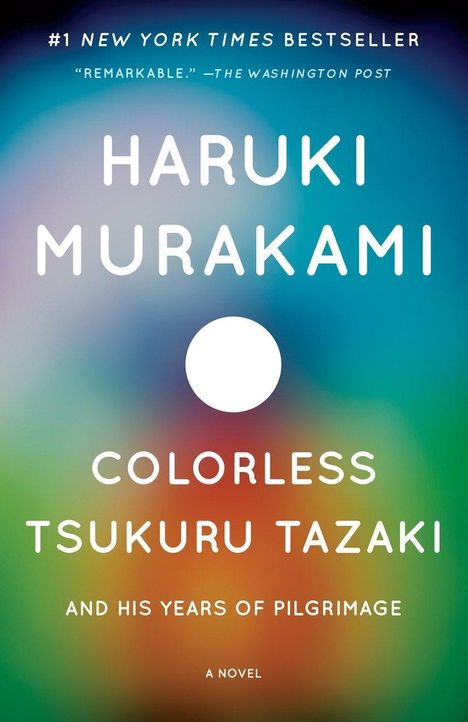Haruki Murakami: Colorless Tsukuru Tazaki and His Years of Pilgrimage, Kartoniert / Broschiert
Colorless Tsukuru Tazaki and His Years of Pilgrimage
Buch
Delivery time is at least 4 weeks
(if available from our supplier)
(if available from our supplier)
Current price: EUR 9.97
Extended return period until January 31, 2026
All products eligible for return that were purchased between December 1 and December 31, 2025, may be returned until January 31, 2026.
Shipping
(United States of America): EUR 19.90
- Translation:
- Philip Gabriel
- Publisher:
- Random House LLC US, 05/2015
- Binding:
- Kartoniert / Broschiert, ,
- Language:
- Englisch
- ISBN-13:
- 9780804170123
- Item number:
- 6113506
- Volume:
- 336 Pages
- Copyright-Jahr:
- 2015
- Weight:
- 260 g
- Format:
- 205 x 131 mm
- Thickness:
- 25 mm
- Release date:
- 5.5.2015
- Note
-
Caution: Product is not in German language
Other releases of Colorless Tsukuru Tazaki and His Years of Pilgrimage |
Price |
|---|
Blurb
An instant #1 New York Times Bestseller, Colorless Tsukuru Tazaki and His Years of Pilgrimage is the remarkable story of a young man haunted by a great loss; of dreams and nightmares that have unintended consequences for the world around us; and of a journey into the past that is necessary to mend the present. Here Haruki Murakami-one of the most revered voices in literature today-gives us a story of love, friendship, and heartbreak for the ages.
A New York Times and Washington Post notable book, and one of the Financial Times, St. Louis Post-Dispatch, Slate, Mother Jones, The Daily Beast, and BookPage's best books of the year
Biography (Haruki Murakami)
Haruki Murakami, geboren 1949 in Kyoto, die Eltern sind Lehrer für japanische Literatur. Studium der Theaterwissenschaften und des Drehbuchschreibens in Tokyo, aufkeimendes Interesse an amerikanischer Literatur und Musik. 1974 Gründung des Jazzclubs 'Peter Cat', den er bis 1982 betreibt. 1978 erste erfolgreiche Buchveröffentlichung. In den 80er Jahren dauerhaft in Europa ansässig (u.a. in Frankreich, Italien und Griechenland), geht er 1991 in die USA, ehe er 1995 nach Japan zurückkehrt. 2006 erhielt Haruki Murakami den Franz-Kafka-Literaturpreis. 2009 wurde ihm der Jerusalem Prize für sein literarisches Werk verliehen und 2014 wurde Haruki Murakami mit dem "Welt"-Literaturpreis ausgezeichnet.
Haruki Murakami
Colorless Tsukuru Tazaki and His Years of Pilgrimage
Current price: EUR 9.97


